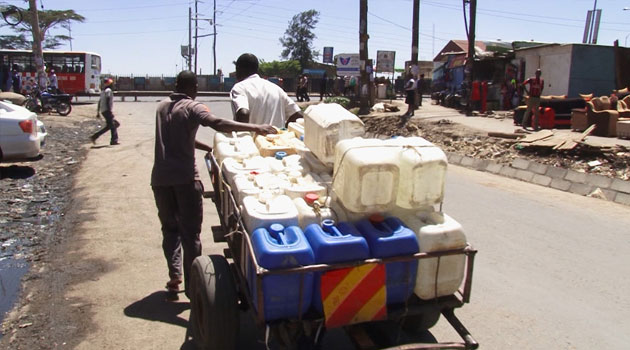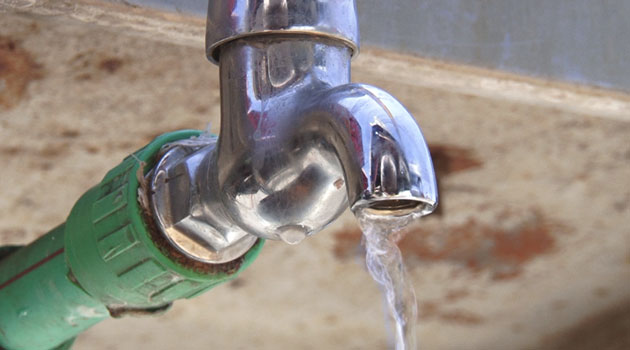
Shadrack Mwangangi, who manages a hotel business along the Airport North Road in Embakasi told Capital FM News that businesses such as his have opted to install additional water tanks to ensure they do not run out of the essential commodity as the four-month water rationing gets underway/MOSES MUOKI
NAIROBI, Kenya, Jan 4 – Nairobi residents have begun feeling the effects of water rationing announced by the Nairobi Water and Sewerage Company (NWSC).
Although the impact of the rationing is yet to take full effect in some parts of the city, businesses in Nairobi’s Eastern Region have already started implementing measures to avert a crisis should the normal water supply fail to meet their needs.
Shadrack Mwangangi, who manages a hotel business along the Airport North Road in Embakasi told Capital FM News that businesses such as his have opted to install additional water tanks to ensure they do not run out of the essential commodity as the four-month water rationing gets underway.
“We have increased our storage capacity,” said Mwangangi, a hotel manager at a local food joint. “Last time when they did not serve us with tap water, we went to the water hawkers and bought.”
According to Mwangangi, water shortages in the past have had far reaching effects on hotel businesses in the area with most of them compelled to buy water from hawkers despite the uncertainty over the safety of such water supply. This situation he said could easily expose clients to waterborne diseases such as cholera if care is not taken.
“Sometimes water supplied by hawkers is contaminated, but with the tap water we’re always sure with the quality.”
Mwangangi however remained optimistic that NWSC will maintain a steady water supply, noting that the water supplier had improved in service delivery over the years.
“Some time in November we went for three days without water supply,” he observed. “Those are the days when you’d find the taps were totally dry.”
Late December, NWSC announced plans to reduce water supply by 16 percent, in a move to cushion the city against a crisis due to a decline in rainfall which affected the water level at Ndakaini dam – the main water source for Nairobi.
According to a statement released by the company, water levels at the dam stood at 48 percent, a situation that warranted them to issue an advisory on water cuts.

NWSC announced plans to reduce water supply by 16 percent, in a move to cushion the city against a crisis due to a decline in rainfall which affected the water level at Ndakaini dam – the main water source for Nairobi/MOSES MUOKI
“The long rains stopped in the first week of May 2016 as opposed to mid June. This means the recharge of the rivers has been poor and currently the flows are below normal affecting the recharge of the Ndakaini dam which is currently about 48 percent full,” read part of the statement.
Under the water rationing programme which took effect on January 1, the company intends to control the supply of water in the five regions of Nairobi namely; Eastern Region, Central Region, North Eastern Region, Eastern Region and the Northern Region, with an exception of airports and hospitals.








































